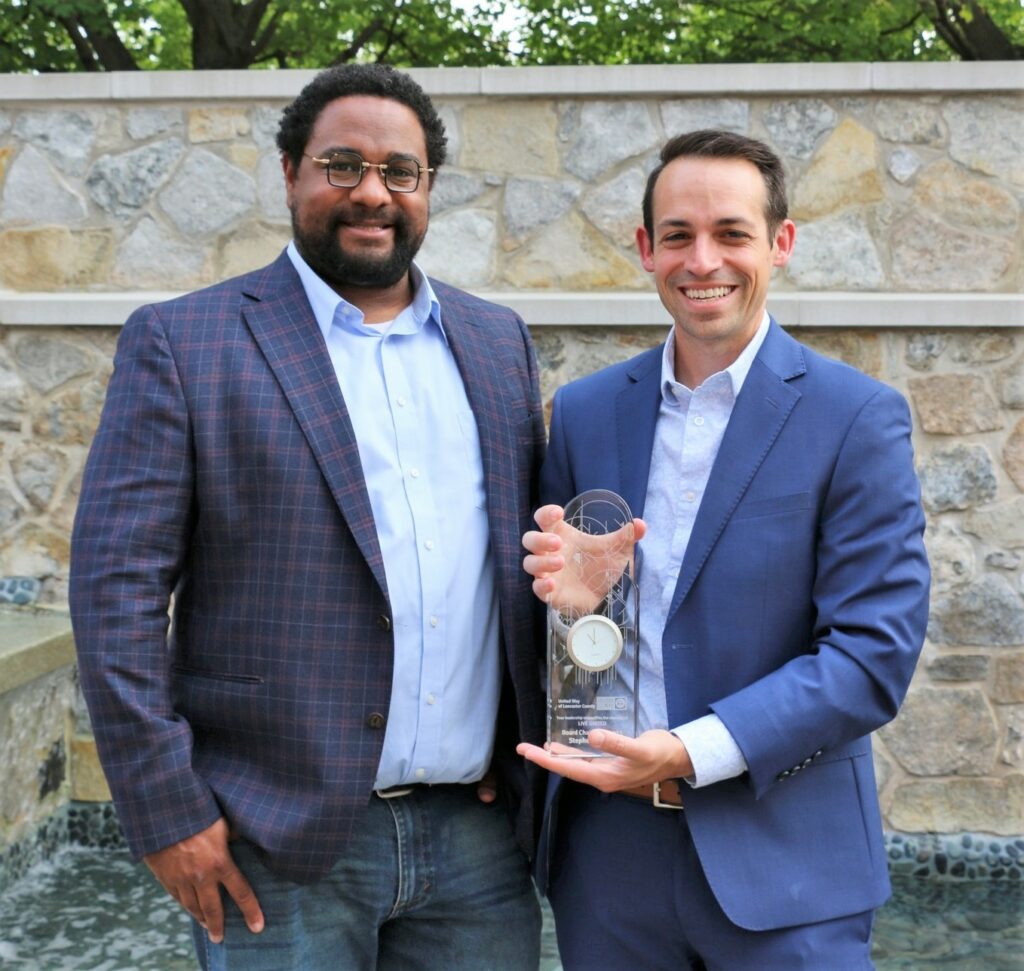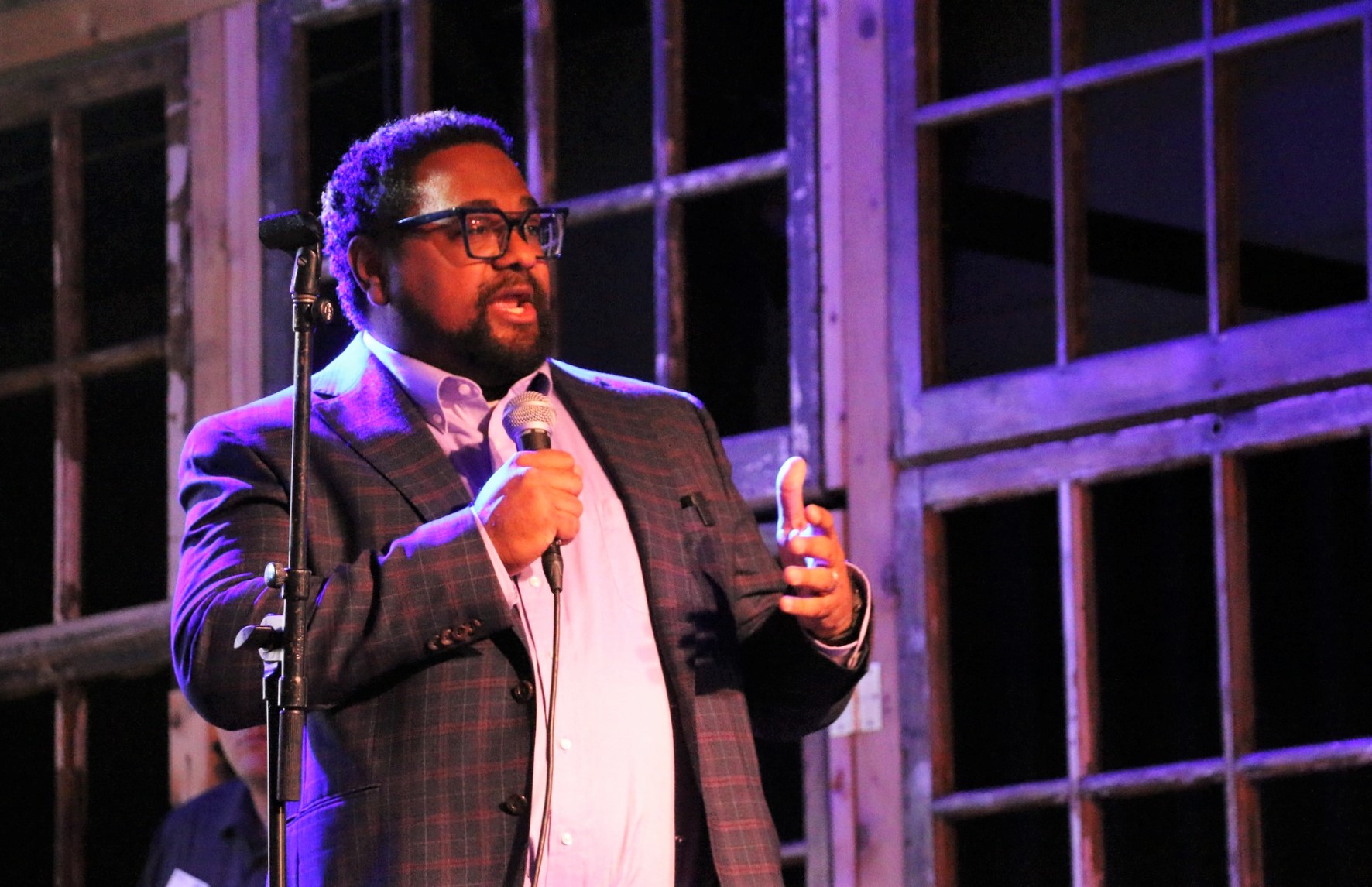Today is Kevin Ressler’s last day as president and CEO of United Way of Lancaster County.
“It has been a blessing to serve my community that I deeply love,” he said.
Ressler took the reins at the organization in January 2020. Two and a half months later, Lancaster County was dealing with its first cases of Covid-19.
As the local community grappled with the worst U.S. public health crisis in a century, United Way joined Lancaster County Community Foundation to launch Lancaster Cares, which raised $1 million to provide nonprofits the tools they needed to continue serving their clients during the pandemic.
It launched Project SOS, which provided small-scale direct assistance to households. Ressler also spearheaded the creation of One United Lancaster, this publication, which celebrated its third anniversary this past April.
Other initiatives include Level Up & Launch, a competitive grant program that provides funding to seed scalable innovations at local nonprofits; and the relaunch of Project Blueprint, a training program to foster diversity, equity and inclusion in nonprofit executive and board leadership.

Ressler is leaving United Way of Lancaster County to become CEO of the Alliance for Health Equity. The alliance, a health conversion foundation initially funded by proceeds from the sale of Brandywine Hospital, funds initiatives to improve health, education and social welfare in the Coatesville area in Chester County. It distributes about $1.2 million in grants annually.
Ressler will be able to work remotely, commuting to Coatesville just a couple of days a week, an arrangement that allows him and his family to continue living in Lancaster.
One United Lancaster spoke with Ressler about his time at United Way of Lancaster County and his hopes for the future. The following has been edited for length and clarity.
One United Lancaster: Looking back, what do you think you changed in your three years at United Way?
Kevin Ressler: I think we demonstrated what can happen when a community pools its resources in a centralized place with a centralized purpose. Particularly during COVID, we were able to reiterate the value of “common purse for common purpose.”
When Lancaster County Community Foundation reached out to us to help, they understood our ability to distribute dollars and understand what’s happening in a cohesive manner. It is probably the singular unique element that United Ways have in virtually every community. …
(During the pandemic) we put a brief hold on our VITA (Volunteer Income Tax Assistance) program, while some United Ways just shut it down and didn’t run it for a couple of years. We pivoted and did a fully virtual VITA season that was praised by the IRS. We managed the VITA program for York County when their partner, Spirit Lutheran, was no longer capable of doing it.
Our 211 (United Way’s social services referral hotline), which had already expanded to seven counties a few years ago, became significantly more robust and important. … The people (staffing 211) are carrying some of the heaviest trauma in our communities by listening for 8-hour shifts to the travails and troubles of individuals. That value they give to the community is absolutely underestimated, and undervalued. So I was grateful that, working with the board and the leadership team, we made a budget that began the process of increasing their wages. …
(Regarding One United Lancaster), I think the addition of a community-based and community-focused news entity is invaluable and is going to be seen down the line. Its establishment was critical and was probably impossible without it being in the time period it was.
OUL: Besides the pandemic, 2020 was the year of the George Floyd killing. As CEO, you’ve been prioritizing diversity, equity and inclusion. Can you talk a little bit about that?
Ressler: The day after George Floyd was murdered by the police, I received a phone call from someone who I respect and care deeply for, an older White individual. He said, “I just wanted to check in. How are you feeling?”
My response was, “Why would I feel worse today than yesterday? Nothing’s changed. … Call me and ask me how I feel once I see some practical, actual changes. Not promises, but policies and practices. Then I will have changed my emotional state. Until then, yesterday is today is tomorrow.”
So, we tried to bring forth practical solutions and awareness. I’m really proud of our partnering with other community institutions to sponsor the Racial Equity Profile. To say, we have to have a baseline understanding, so that we can’t just anecdotally convince ourselves that things are better now. …
The other thing more specific to United Way (was Project Blueprint). Some members of our community would say that individuals (seeking community leadership positions) need to pick themselves up by their bootstraps, and help themselves. … Other members of our community would say, “Hold on, there are structural social barriers that limit the individual and the opportunity to succeed.” And so, as CEO of United Way, you have to figure out what’s the thread to hold those together?
We said, “You know what? Individuals do need to be presented opportunities. We can’t say, “You should be doing this” if “this” isn’t available — in this case, “this” being training. So we wanted to make sure there was training for individuals on how to be in influential spaces, to serve on boards and to provide the necessary ideas and feedback to transform our community.
Simultaneously, though, if we train every Black person in this community to be the best board member in the world, will the boards actually give them a seat? We can transform who’s sitting in the seats in places of influence and power by making sure they’re well equipped. But we also have to equip those places of power to be transformed in a way that allows them to actually understand what it means to be inclusive, what it means to be able to be transformed when you’re bringing in diversity.
I was really excited and proud that we did that kind of work. We didn’t just shout out from the rooftops what’s right or wrong about the world. We dug in and began the process.
OUL: You’re going to stay in Lancaster. How do you anticipate continuing to engage with the community?
Ressler: When I took the job at United Way, one of the things that I said to people is that I see two very strong veins of transformation in this country. One is street activism. The other is boardroom activism.
That’s to say that there are certain activities that get spurred on by street activism and advocacy and response. But they are inherently ephemeral, because they don’t change policy. Even when they change practice, they don’t change policy. Without individuals inside pushing against the status quo, you’ll never actually have transformation.
United Way is a really important and wonderful organization that allows for its leadership to sit at certain tables and be in certain conversations that were not available to me as a private citizen. So, some of the things we’ve already talked about here would not have been possible from my influence prior to United Way.
But when you’re part of an institution, I believe, good leaders respect that association. So, even if I were to say something but say, “This is me speaking as an individual, not the institution,” that still has some level of reflection. In no way have I ever been silenced, but it has shaped how I talk and how I approach issues.
Now that I will have my professional role outside Lancaster County, I am excited and eager to see how it allows my own voice to emerge.
OUL: Do you have any preliminary ideas on how you’re going to approach your role in Coatesville? An initial to-do list?
Ressler: I remember what Lancaster was like when I graduated high school in 2003, 20 years ago. I remember that there was basically nothing open after 6 o’clock if you were under 21. Square One Coffee Shop, that’s about it. …
Coatesville’s story is a classic Rust Belt type of situation. It was a bustling town, the only city in Chester County. Then they had their steel mills shut down. So they suffered from brain drain and the challenges of an abandoned economic community, the destitution that can come with that. As a result, the hospital closed, which is what created the Alliance for Health Equity.
Now, there’s economic development coming, especially with a new train station and other things in Coatesville. It’s almost like rolling back in time to my own youth. Only I now know what’s going to happen, or what can happen.
When I was in high school, I wanted to leave and never come back to Lancaster, because I didn’t see a future. When I came back after college, the future was starting to develop. In Coatesville, the future is starting to develop and this time I’m in a higher level of influence. So I’m excited to take lessons from Lancaster and apply those in a way that hopefully maximizes the opportunity.
OUL: What are your hopes for the United Way in the next couple of years?
Ressler: I feel strongly that I’m able to leave comfortably now. We’ve developed a really strong team of core managers and individuals. We’re just at the beginning of implementation, but the path has been laid. … Now’s the opportunity for it to develop.
The community in many ways has started to show up again for United Way. Total revenue has been up from grants, and individual contributions to special funds like Project SOS and Lancaster Cares really showed the power of the community’s generosity.
To have a robust community, and keep it, requires continuous investment in each other. … We really are better and stronger as a community when we look to one another and say: You belong here, whoever you are and however you can commit and contribute to Live United.






